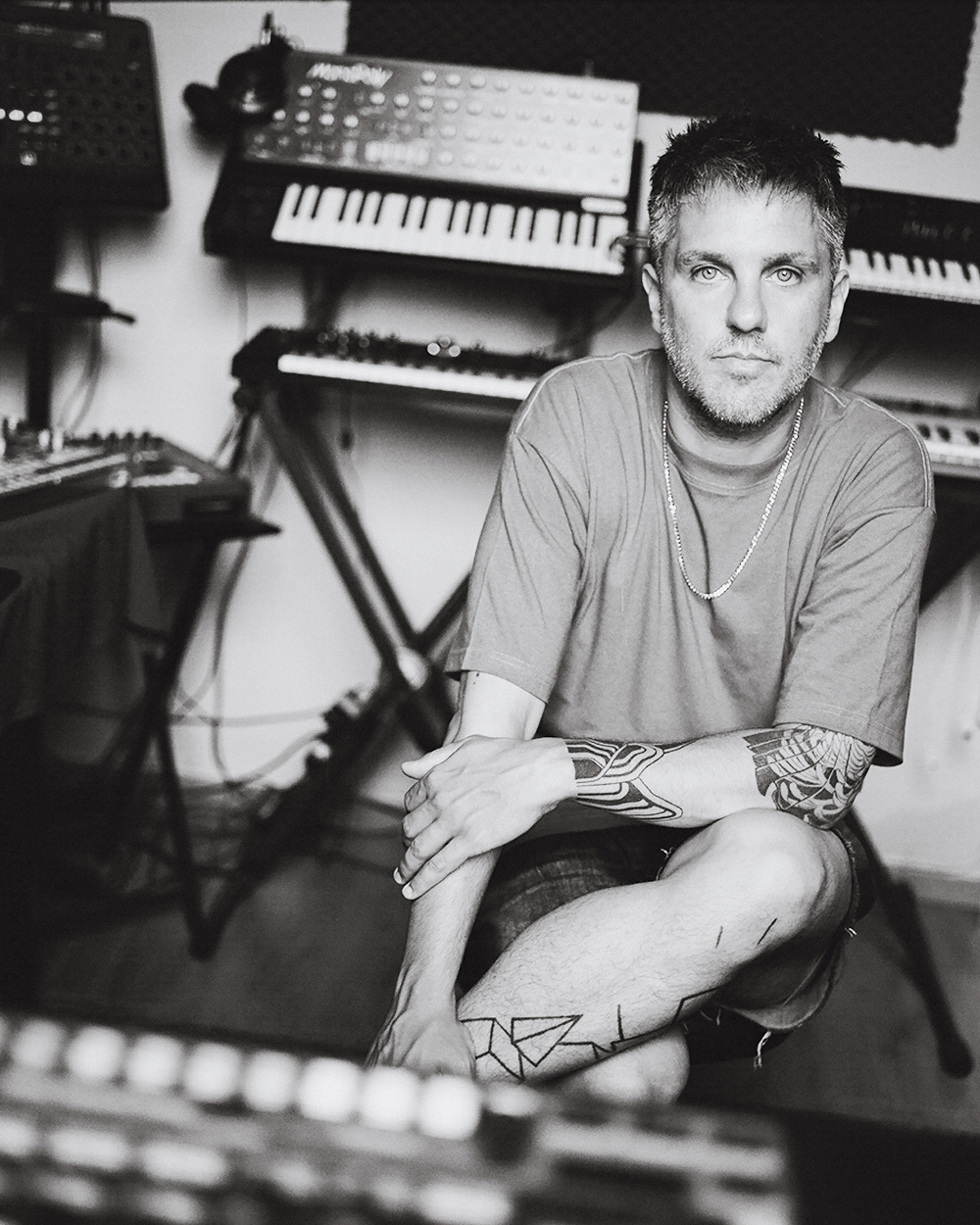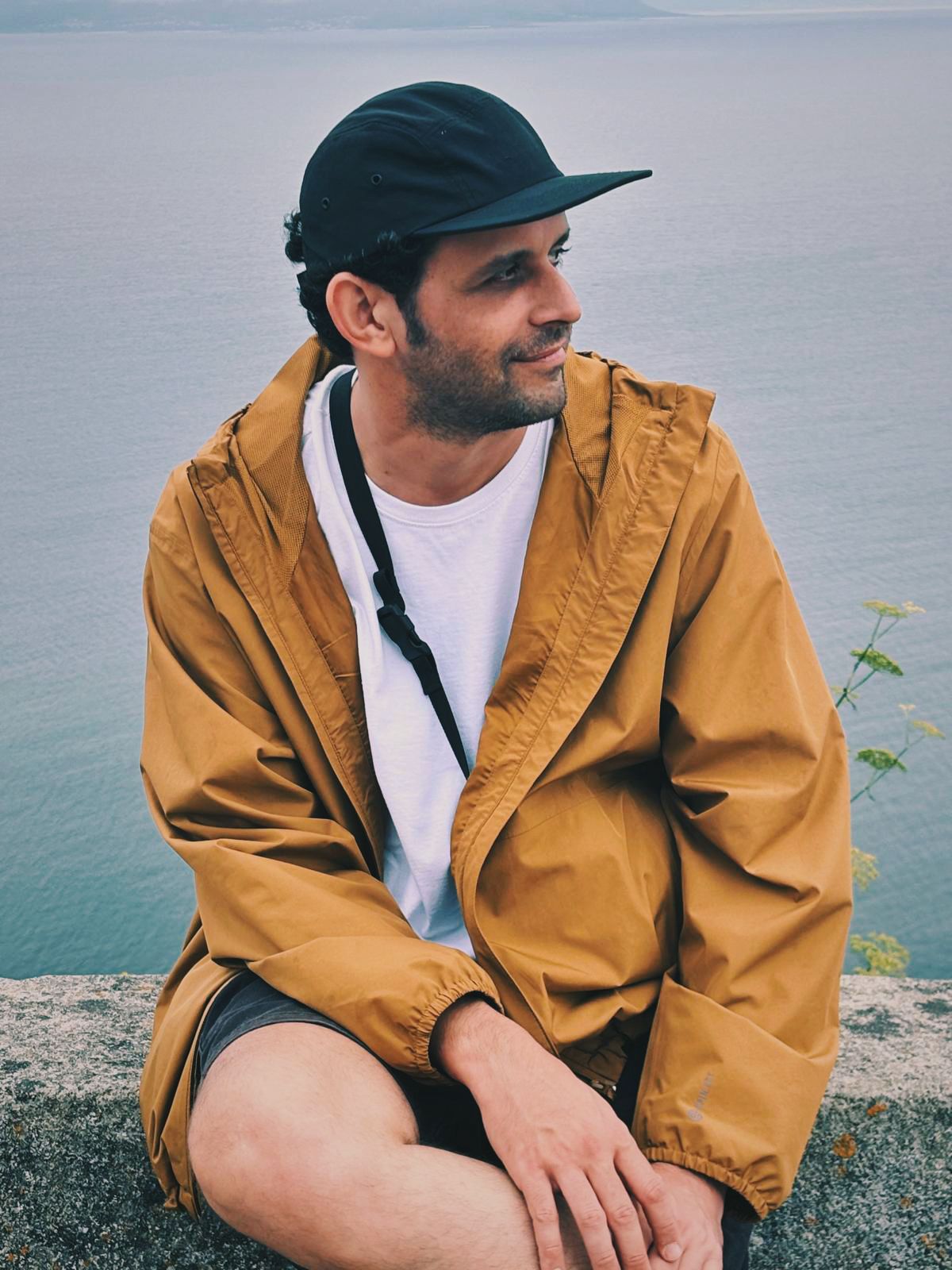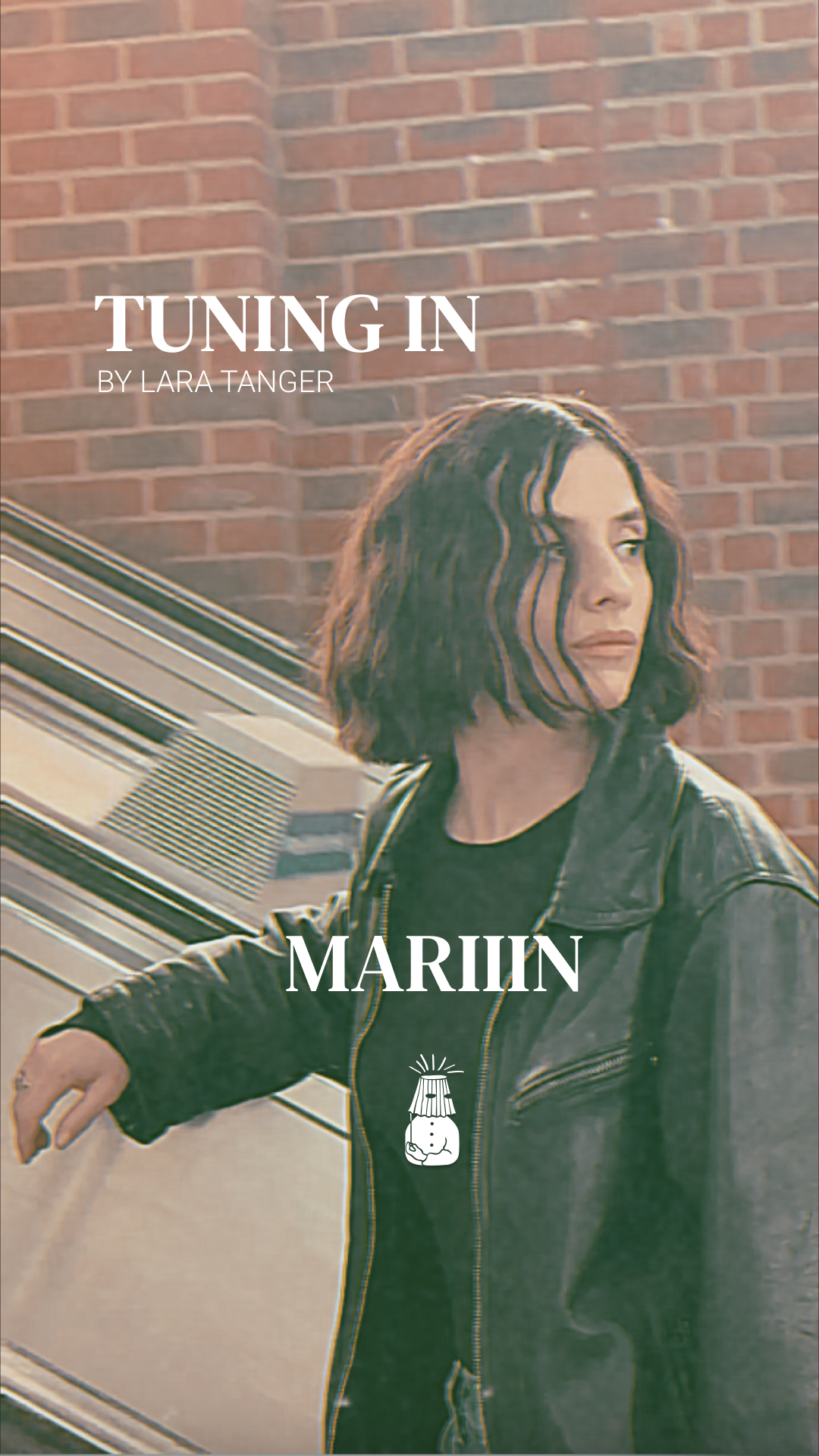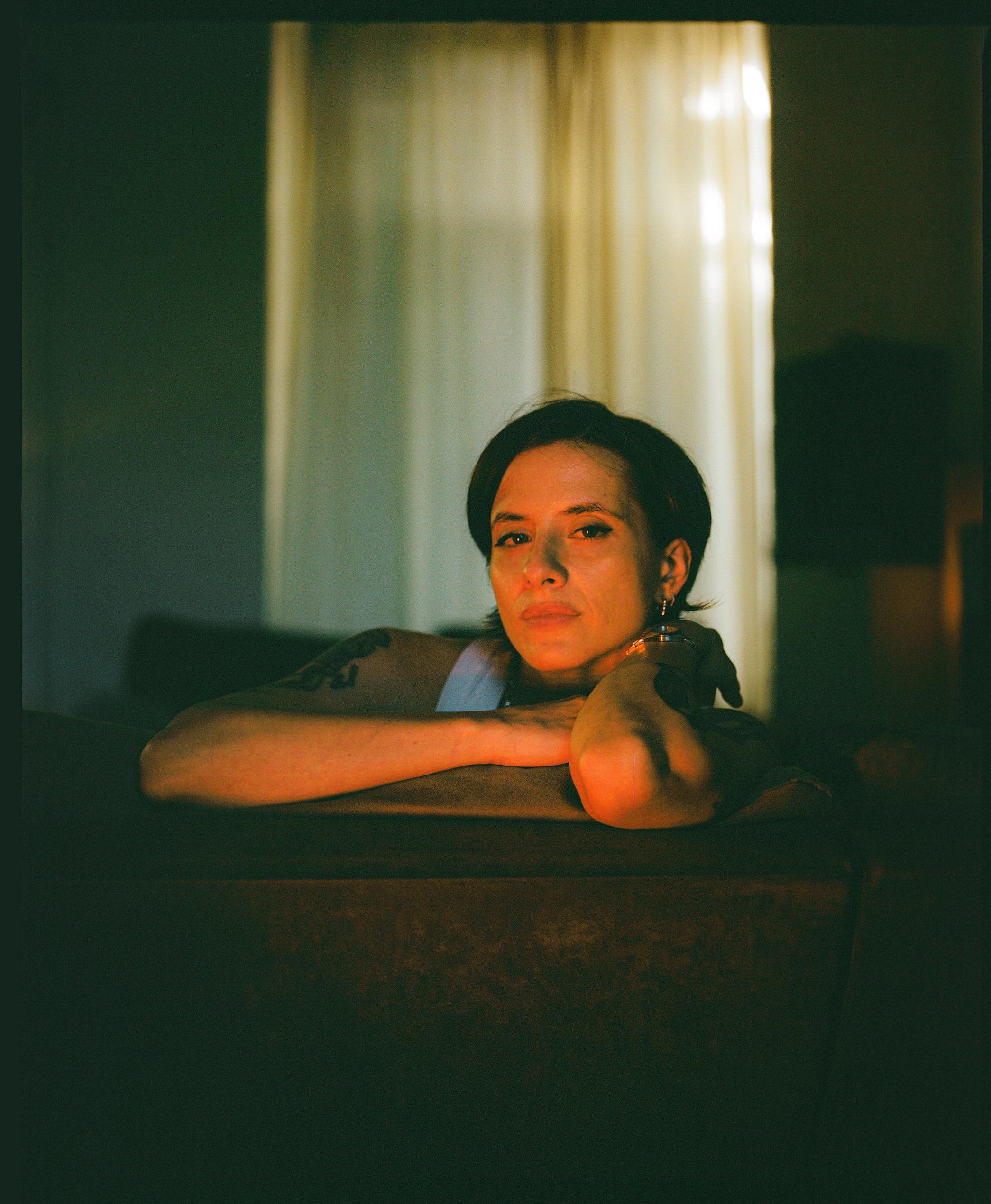*Please note: The text has been edited for clarity and readability. While slightly shortened, it preserves the core message of the conversation. You can listen to the full, unedited version in the podcast on Soundcloud here:
Welcome to Tuning In, a series by Zabam. I’m Lara Tanger, a therapist trained in ACT and Mindfulness-Based therapies. In this series, we explore the stories of people within the electronic music scene, focusing not just on what they do, but on who they are and what drives them.
At Zabam, we’re passionate about fostering creativity, growth, and connection. Tuning In provides a space for honest conversations about what truly matters—and how connecting with these insights can guide our journeys.
Today, I’m excited to introduce our first guest, So-Fi. Born and raised in Paris, she spent years exploring underground music. She moved to London in 2013, then to Berlin in 2017. During this time, she built a vast vinyl record collection. She is now a resident at the Superluminal and Discarded Gems party and regularly plays at clubs like Hoppetosse, Watergate, and Renate, while also touring internationally.
So-Fi: Thanks a lot for having me. I'm really glad to be here to talk a bit about myself and my experience.
Originally, I was born in Paris, France. I've always been really into music since I was a child. I think it has a lot to do with the fact that I'm quite a sensitive person. I feel music deeply, and it helps me feel different. Growing up, it was always part of my life, always my passion, but I never envisioned making a career out of it until much later in life.
A turning point in my music journey came during a time when I was really sad, going through some personal issues. The music I was listening to wasn’t resonating the same anymore because I wasn’t feeling the same. At that time, I isolated myself a lot. My escape was searching for music that would make me feel good again.
I spent a lot of time researching music, and I started finding specific sounds that made me feel good again. These sounds helped me forget about my problems and the things that made me sad. This moment really defined the style of music I play today. In a way, the creativity I have today comes from a really dark period of my life.
That's why I wanted to do this interview. When I was asked to talk about mental health related to my career and my work in music, I thought, of course I have to do it. My mental health and my career in music are closely linked. They go hand in hand, so I definitely have something to say on that.
Lara: Can you tell me a bit more about that turning point in your life?
So-Fi: I've always had a deep connection with music, ever since I can remember. As a child, I already had a collection of CDs and cassettes. All my hobbies and even gifts were music-related—concerts, albums. Music has always been part of me, but I didn’t pursue it as a career right away. For a long time, it was just a passion, something I did alongside other things.
After moving to Berlin, I met people who encouraged me to share my music with others and play for people. This really changed my perspective and strengthened my artistic vision. I owe a lot to my friends and my boyfriend for pushing me to be brave and share my music, though it wasn’t easy.
I’ve always kept certain things private, especially the music I found during sad times. You don’t always think others will feel the same way about it or appreciate it the way you do. But I realized that many people do feel the same. So my both my nature and environment shaped me into the DJ I am today. I also learned to confront the anxiety I've dealt with since childhood.
It’s been a journey, but I believe it was meant to be this way. And thanks to the people around me, I have more motivation and courage to be myself and embrace what I can bring into the world.
Lara: It sounds like sharing your music became a way for you to reconnect with others.
So-Fi: Yes, absolutely. Sharing music is completely a way to express how I feel and connect with others. But it’s always a bit tricky, because you want to share, but you want to do it in the right way.
Lara: And what does “the right way” mean for you?
So-Fi: When you're sad and isolate yourself, it can feel like others are happy and you are not. In these moments, you can’t think so clearly. So you have to step back a bit to avoid becoming too wrapped up in your own thoughts.
When you isolate yourself, you have nothing to counter your thoughts. This will change your perspective and can make you a bit selfish. When you share music, you don’t want to be selfish - but you still want to be yourself. You have to be vulnerable. But you also have to share in the right way because my job is to make people feel things, but also feel good things, to dance, to have a good night.
So I try to do a little bit of both: a little bit of story, some deep emotions, but also to keep a very groovy, dancey vibe because I want people to have fun. I want people to feel good. And for sure, the music I selected makes me feel good.
Lara: Have you found any practices or habits that help you maintain that balance between authenticity and not getting too caught up in your own thoughts?
So-Fi: As someone with anxiety, I don’t believe in rituals because they can reinforce anxiety. You need to break those patterns that comfort your anxiety accept it and let it go. However, I do try to clear my mind and be present, and to feel the crowd.
I think the most important thing is the intention. When your intentions are right, whether you succeed or fail, you’ve tried with the best motivations. I believe people can feel that. As long as your motivations are pure —wanting to make people feel something, make them feel good and connect with them, give and receive— you’ll attract people who see it like you do. Maybe not every time, but it will happen.
Lara: It sounds like knowing yourself is a crucial part of that process for you.
So-Fi: Yes, and being honest about the way I see life and music. It wouldn’t be right to pretend that everything is easy or that things just fell into place because I worked hard. It would be a lie to say I enjoy every moment or every second. Life has ups and downs. Even if we’re not all the same in terms of sensitivity, we all have feelings, good moments, and bad moments. Most people have had experiences that shaped them, whether they were good or bad, and I think many can relate to my experience.
I want people to feel like they are not alone. When you feel bad, many other people feel the same way. We’re all struggling in some way. This is what I want to share, so people know they are not alone. It’s important to talk openly and to have the courage to express all of these things without being ashamed. Of course, we all want to show ourselves in the best light, but if we’re really honest, we have to talk about everything.

Lara: Do you feel that the electronic music scene is currently supporting you, allowing you to be who you are and share that with the world?
So-Fi: Most of the parties and the people I meet through my gigs are really nice and cool. I meet a lot of interesting people, and we always have great conversations. I think the people involved in my work are aware of these things. They share some of the same views I have on these matters. I don't hide it when I meet people—I talk about it quite openly. Discussing it brings the subject into the conversation, and you can find out if people are sensitive to these topics or not. From my perspective, yes, for sure.
I understand that Zabam was created to shed light on mental health in the electronic music scene. A lot of people, especially artists, struggle with their mental health in this scene. It's common knowledge, but we don’t often dig deeper into it. For example, in the media or in interviews, these topics aren’t exactly fun to discuss, so we tend to avoid them.
Lara: Although we are making progress to talk more openly about emotions in our society, there still seems to be a stigma around mental health.
So-Fi: Of course. For some people, mental health issues are something new, or they don’t even exist in their culture. Some people can’t tell their families that they have mental health issues because no one would take them seriously. So, how can you blame them?
Lara: Even the term "mental health" suggests that something is wrong. When we discuss physical health, we don’t immediately assume illness. We can also think of what we do to stay healthy, like diet and exercise. But when it comes to mental health, it’s easy to feel like there’s something wrong with you. However, our vision at Zabam is to empower people and emphasize that understanding yourself and how the mind works is also a crucial part of mental health. Understanding yourself and what is important to you can guide you through difficult moments. This is also what I hear back in your story.
Lara: I can imagine it can be difficult to stay true to yourself when you feel anxious.
So-Fi: Definitely. When you have anxiety, you overthink how others perceive you, making communication feel tricky. Sometimes, you say something, and people misunderstand or see you differently than you intended. It becomes overwhelming, and then you just freeze—you can’t do anything. I’ve dealt with that a lot in my life, but I’ve learned to accept it. I can’t solve it with rituals or medication; it’s just who I am. Sometimes I’ll feel bad, but I have to let it pass. Emotions start and stop, and another one will come along. Nothing is static.
The more I accept myself and realize I’m not going to change into someone else, the better I live. When these thoughts arise, I try to stop them and focus on what’s right for me, not what my brain tells me to do. For example, I was anxious about this interview—wondering what I should say and how it would be perceived. I decided to stop overthinking and just be spontaneous and myself in the moment. That’s how it should be.
I apply the same approach to music. I don’t think about the result; I focus on what I want to do and why I’m doing it. Then I just go for it and see what happens. Sometimes I’ll fail or make mistakes, and that’s okay. I’ll learn from them. The more you learn, the better you feel about yourself, your work, and your music. I try to shift my thoughts from what makes me feel bad to things that will make me feel better.
One thing I’ve learned is that I’m not my thoughts. I take a step back and realize that these thoughts are happening to me, but I’ll keep doing what’s important to me anyway. Some people don’t have internal thoughts, but I think most do, and they can be wild sometimes, depending on how you woke up. It’s random, like a lottery.
Lara: The problem is that we sometimes give too much meaning or importance to those random thoughts.
So-Fi: Exactly! But the brain is just generating
Lara: But it seems you’ve realized that a thought is just a thought, and it doesn’t have to direct everything you do. But I can still imagine dealing with these thoughts can be difficult.
So-Fi: It’s still difficult. Some days, I feel a bit off and anxious, and anxiety affects me physically. On those days, it’s really hard. Some days I manage to push the thoughts away. Some days are okay, but other days you really have to fight and be patient. Sometimes, after a few hours, the anxiety just goes away. So yes, there’s a bit of discipline involved, as well as patience and acceptance. I think everyone sees it differently, but for me, it’s like this.
So-Fi: Seeking help is never easy. The medical field treats physical and mental health differently, and the help available often depends on where you live. You might wait months to see a therapist, and even then, the solutions can be hard to accept. If a doctor prescribes medication, you might hesitate to take it, and reactions can vary. The same goes for therapy; it depends on your connection with the therapist and whether it's the right moment. Personally, I don’t have enough knowledge about this to discuss it deeply, but it’s a big topic.
Lara: What resources have helped you the most?
So-Fi: For me, reading has helped the most. Books about psychology, personality, and trauma. If you learn about how your personality developed, you’ll understand there are so many factors that can influence your brain, thoughts and feelings. Life experiences shape us in so many ways. It is important to learn about yourself and reflect on what has happened to you. The more I dig into these things, the more I learn about myself, why I react to things like this and how this is affected by the past. There are so many things to learn about.
Lara: But about these things we often don’t learn in school. Do you think education on these topics is important?
So-Fi:. Absolutely. It should be taught in schools, from an early age, at least an introduction to understanding emotions. People would understand why they’re angry or why they perceive others a certain way. They might discover they have false assumptions or that they take things too personally often. It’s a fact that many people go through bad experiences in their lives and don’t speak about it. It’s sad, but it’s the reality.
Lara: It feels like we’ve come full circle. You’ve shared your vision about the importance of education and self-understanding, and also how society needs to understand that we aren’t alone in these experiences. This ties back to how you started the interview—you said you went through these emotions and found a way to share them with the world.
So-Fi: I care about these things and I feel for others. I try to have a good addition in this world; I don’t know if it is useful, but at least it comes from a good intention. I want to share good things and make people feel better. That’s something I see in other artists too. Many have really good intentions and for sure, they have struggled many times as well. I know I am not the only one. I am sure there are many that can relate to everything we spoke about today.
Lara: You’ve shared so much wisdom about how you’ve dealt with difficult emotions while staying true to your vision and intention as an artist. If you could advise another artist, or maybe your younger self, what would you say?
So-Fi: I would tell them never to listen to critics and to do what they want, the way they want to do it. Keep your own vision and don’t let anyone disturb it. Don’t seek validation from other people. You have to love and believe in yourself. Especially when it comes to your artistic vision: just do your thing and don’t let criticism affect you. Because if you want to be authentic, it has to come from you; your soul and your heart.
Lara: That’s a beautiful way of putting it. It also connects to what you said earlier about coping with internal critics.
So-Fi: Exactly. External critics can feed your internal critics. I struggled with it myself. Criticism can make you want to give up. But then I was proven wrong! Those critics didn’t matter—they were useless and shouldn’t have made me feel bad.
Lara: It’s natural to be sensitive to criticism, but it’s important to know when it serves you and when it doesn’t—when it blocks you from staying true to yourself.
So-Fi: Right. And if you need to learn something, you’ll figure it out on your own. Mistakes teach you, and you can analyze things for yourself.
Lara: Thank you so much, So-Fi.
So-Fi: Thanks to you for having me.
In this conversation, So-Fi shared openly about how her music and creativity are deeply connected to her mental health. Staying connected to her true vision and intentions as an artist helps her navigate moments of self-doubt and fear. Her story shows us that self-understanding and staying grounded in what truly matters can serve as a counterforce to anxiety.
She also highlighted the importance of being open about mental health and the importance of connecting with others. By sharing, we can break self-isolation and create opportunities to relate and find community. In sum, So-Fi story carries multiple meaningful messages. I hope these resonated with you or can serve as inspiration.
Before we close, I want to acknowledge that we touched on themes of mental health, anxiety, and personal struggles, which can sometimes bring up difficult emotions. If this is the case for you, know that you’re not alone, and seeking support is okay. Please remember, this article is not a substitute for therapy. If you're experiencing significant challenges, consider reaching out to a licensed therapist or healthcare provider for additional support.


















